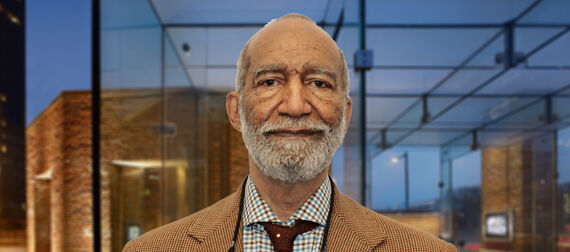Bill Rouse was a giant, a tall swaggering man with a smile and demeanor that would put anyone at ease in his physical presence. But that is not why he was a giant. He was a giant of commitment and of accomplishments that changed Philadelphia.
My first association with Bill came during the late 1980s when I was privileged to work with him on several development projects and was loaned to help him plan the bicentennial of the Constitution. I am keenly aware that I am only one of hundreds of Philadelphians who feel a similar connection to this man. That was his way, to give everyone that worked with or near him a permanent sense of kinship.
His legacy is multifaceted just as he was. The most obvious accomplishment was changing the city's skyline. His Liberty Place towers created a "new" Philadelphia skyline and brought a new energy here; it inspired others to match their daring and grace. The project was designed and built at a time when Philadelphia was questioning its future. While their architectural merits may be debated -- I for one admire and appreciate their scale and attention to the mixed-use needs of this city -- they will define the symbolic image of our city for generations. Bill instinctively understood the symbolic importance of a city's skyline, which was brought home to us when the World Trade Center Towers were lost in Lower Manhattan. When others were struggling with the symbols of the past, Bill was focused on giving this city a symbol for the future.
To the informed development eye his projects often solved more complex design challenges. The site where the Stock Exchange building now sits was vacant for many years until Bill Rouse imaginatively configured a successful and exciting building that solved the problem of a site. His interior court garden space made the building feasible and created a new experience for Philadelphia's commercial buildings.
Bill understood that Philadelphia needed not only a new hall for its orchestra but that we underestimated our market for performance space and needed a signature place to promote our considerable cultural assets. I recall fielding a telephone call from an important community leader distressed that Bill was pursuing a project whose numbers didn't close. That leader had not grasped the Rouse spirit -- that action begets opportunity. Quakers have a saying that "the way will open," and Rouse believed that it would. Was it naivete or vision? Bill knew the difference and made the right choices. The Kimmel Center is today a symbol of this city's arts and cultural leadership. Rouse's flair for the dramatic is legendary, the "wow" space or "sprinkle-dust" moment in an event was his trademark.
The party on the Ben Franklin Parkway for the topping out ceremony of Liberty Place was recounted to me recently as a career turning point for a group of young brokers. They still recall that evening as magical and unequaled in their realestate careers. His work was also marked with quality. Just a couple years ago at a Friends Select School address, Bill discussed the quality of a building's restrooms. What many might see as a place to shave costs, Bill Rouse saw as the symbol of quality that all would remember. His passion was to make everyone's, or as he might say, the "common man's," life more fulfilled. As he described in that speech, everyone must use the bathroom; that is the place where your building will be judged.
For Bill Rouse, no civic leadership task was insurmountable. Civic leadership, a concept greatly discussed, dissected and lamented in our time, does not adequately capture what Bill's commitment really represented. From the Liberty Medal to the Convention Center to the needs of a hospital in Africa, he was there.
Many will remember his legacy as the physical structures, both public and private, that he built; others will turn to his company, Liberty Property Trust, and the premium standard that it has set in the real-estate industry. Still others will reflect on his service to organizations and to people. All of these, of course, are important accomplishments. Yet, I think there is another. All of us who were associated with Bill will remember the way he thought, the boldness, the fun, the "can-do" spirit in his approach and, yes, the morality of his dreams. He did not wink at the big or little subterfuges of our system, and he did not tolerate petty conflicts and bickering. These values will endure and may influence the direction of our community for the next generation. Bill leaves us with great accomplishments, but he also leaves us the responsibility to carry on with the commitment that he lived, and the courage to make our community into the place that he dreamed about and that we all seek.


